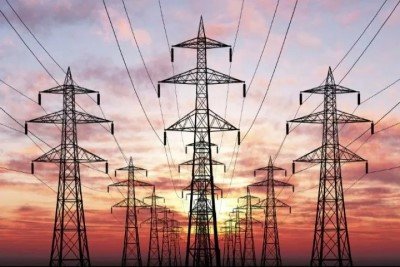Report by Kamgar Ekta Committee (KEC) correspondent

Electricity at 50 Rs per unit in the coming months? Not possible, said a consumer.
But, just a few days back this is what the government has permitted. Power generating companies using imported coal and natural gas or naphtha have been allowed to sell power at up to Rs 50 per unit.
The 15 imported coal-based power plants include Tata Power’s and Adani Power’s plants in Mundra in Gujarat; Essar power plant in Salaya; JSW Ratnagiri; Tata Trombay; Udupi Power; Meenakshi Energy; and JSW Torangallu. The total generating capacity of these plants is 17,600 MW. The total capacity of natural gas-based power plants is around 25,000 MW.
Like last year, this year too there is an apprehension of power shortage as the summer months approach. Farmers in Punjab are already complaining about not getting power when they want it for irrigating their farms. The government’s own estimates show that power requirement will increase by 15% from around 200,000 MW to 230,000 MW by April 2023.
The Ministry of Power has already asked 15 imported coal-based plants to run at full capacity from March 16 to June 15 to avoid any shortfall in electricity supply during the summer.
These plants were operating at very low capacity giving the reason of high cost of generation due to the high price of imported coal. They were refusing to run at full capacity even though they were supposed to, as they have signed long term fixed price supply contracts with state owned distribution companies.
Last year when there was power shortage, power was sold at Rs. 20 per unit on the Indian Energy Exchange (IEX). IEX is the platform where power is sold and bought every day and prices are decided on the basis of supply and demand. Protests against profiteering by power companies forced the government to fix the maximum price power sold on IEX at Rs.12 per unit.
Now by raising the price ceiling to Rs 50 from Rs. 12 per unit, the government has given free hand to these power companies to take full advantage of the likely power shortage, exploit the consumer and profiteer.
The power ministry has also directed (on January 9, 2023) state-owned as well as private thermal power plants to import coal for blending at the rate of six per cent with domestic coal to take care of the likely coal shortage. This will again benefit big Indian corporate groups like Adani and Tata who own coal mines in other countries.
The Adani group has coal mines with more than 50 million tons of capacity across Indonesia, Australia and India, producing fuel both for sale in global markets and to be used in Adani’s own power stations.
Last year too, the government had forced the power plants to import coal to supplement their coal requirement for power generation.
All additional costs of power generation whether due to the use of imported coal or due to the purchase of high price power at IEX, are recovered from consumers.
Why should there be shortage of coal year after year for power generation when India has the fifth largest coal reserves in the world?
Bulk of the coal in the country is produced by two public sector companies – Coal India and Singareni Collieries. These two companies have the most experience in developing new coal mines and producing coal. Instead of encouraging them and providing resources to increase their production capacity, government after government have focused on development of private coal mines and production.
Both Coal India and Singareni Collieries have been asked to hand over their coal blocks for private mining. Coal India has been asked to invest in production of fertiliser and development of renewable energy instead of investing in developing new coal mines and rapidly augmenting its coal production.
Railways also have to increase their capacity to transport coal from mines to power plants. In case of railways, too, the government is all the time looking at ways to privatise its various operations, including goods transport.
People of the country are already paying the price due to the policy of privatisation by way of increased power rates. This burden will further increase during the coming years unless the policy of privatisation is reversed.
